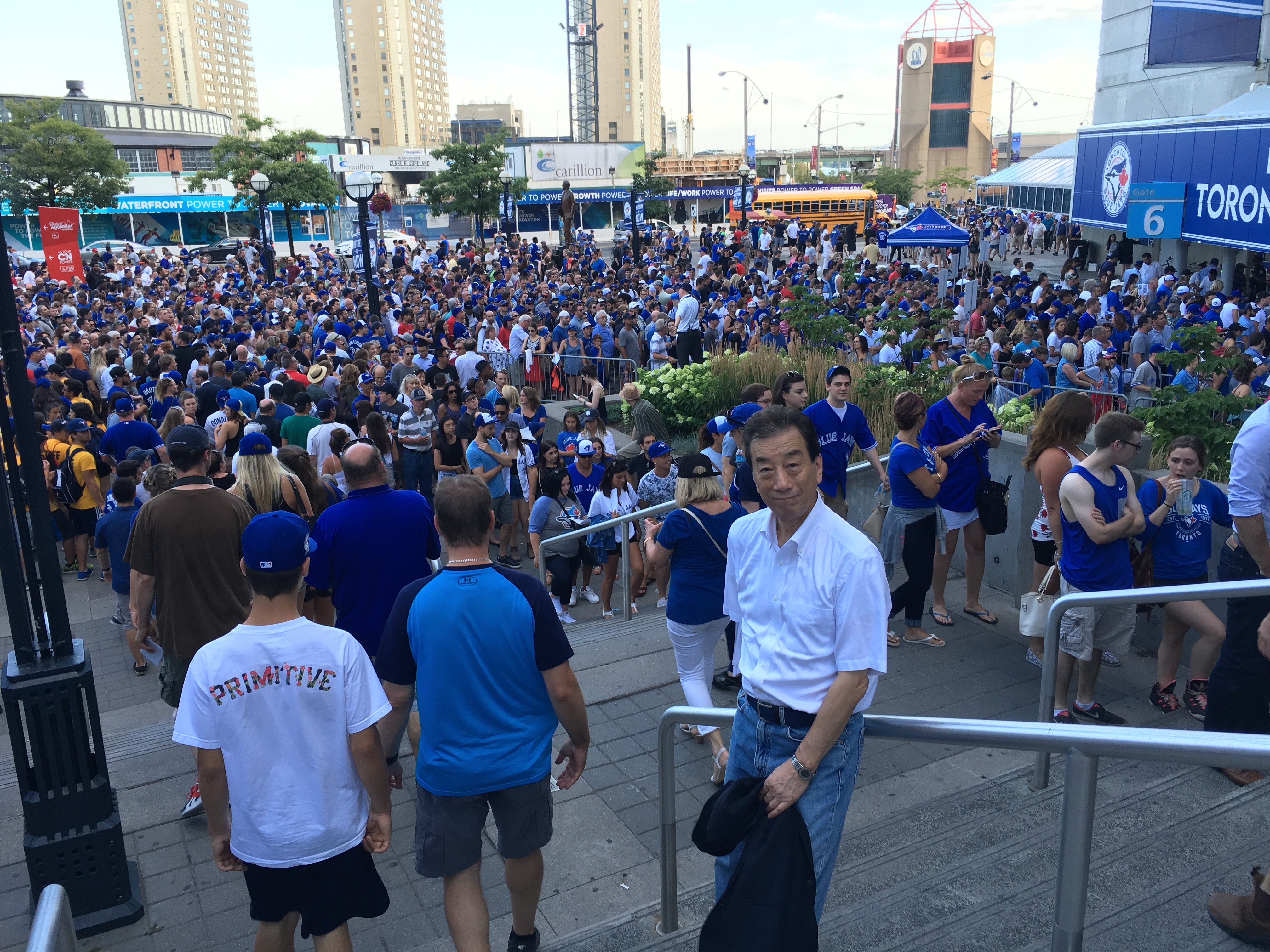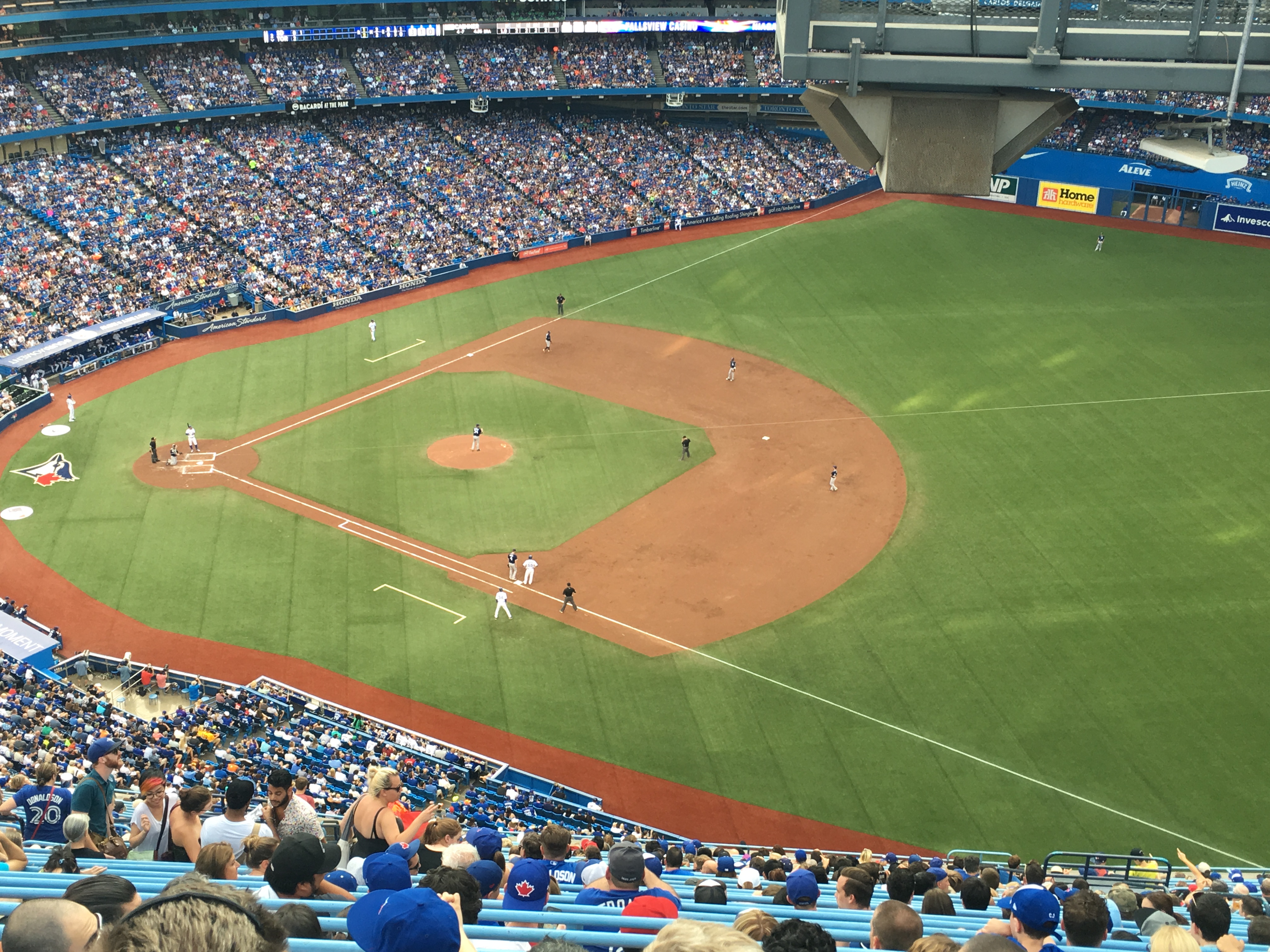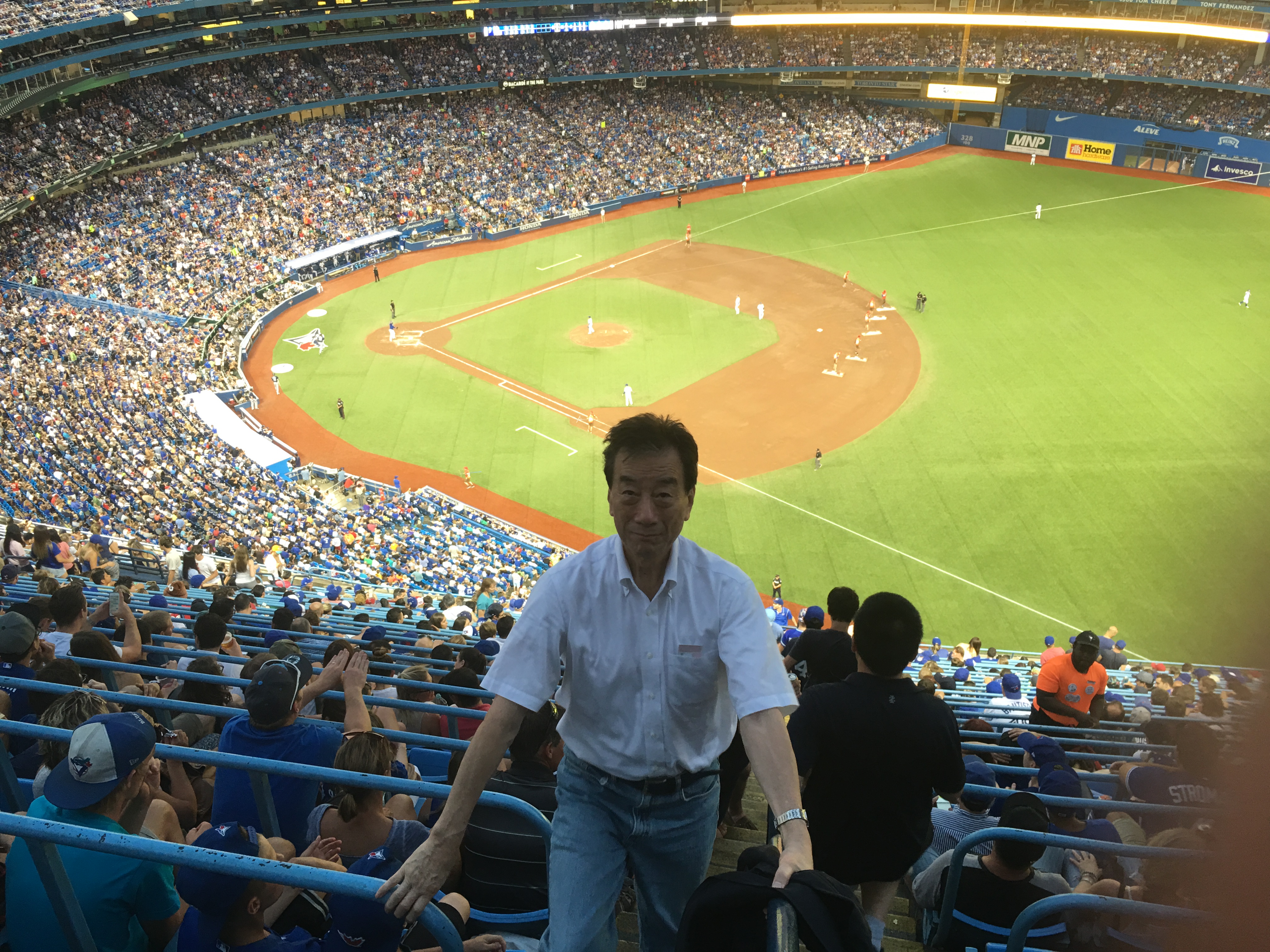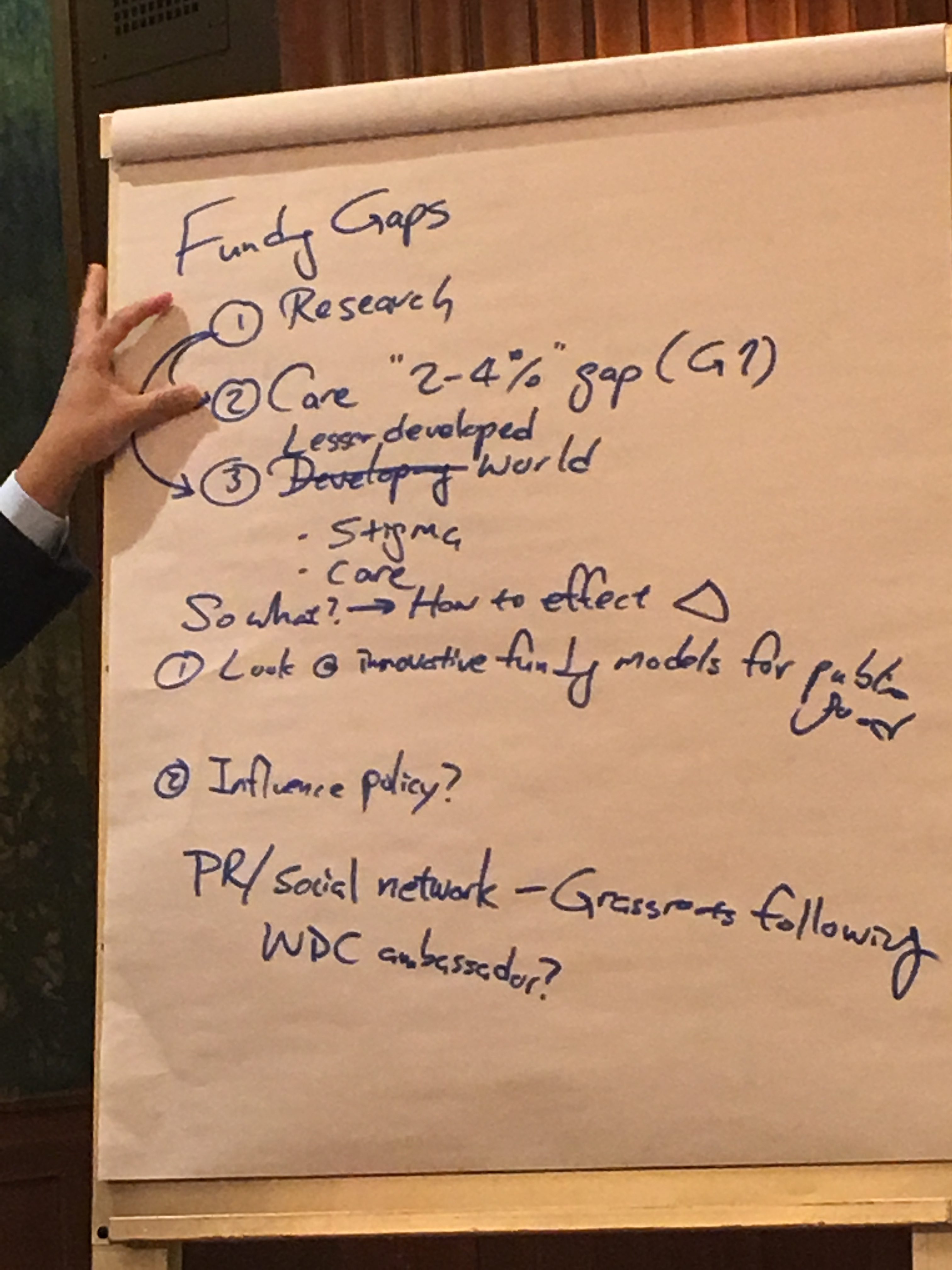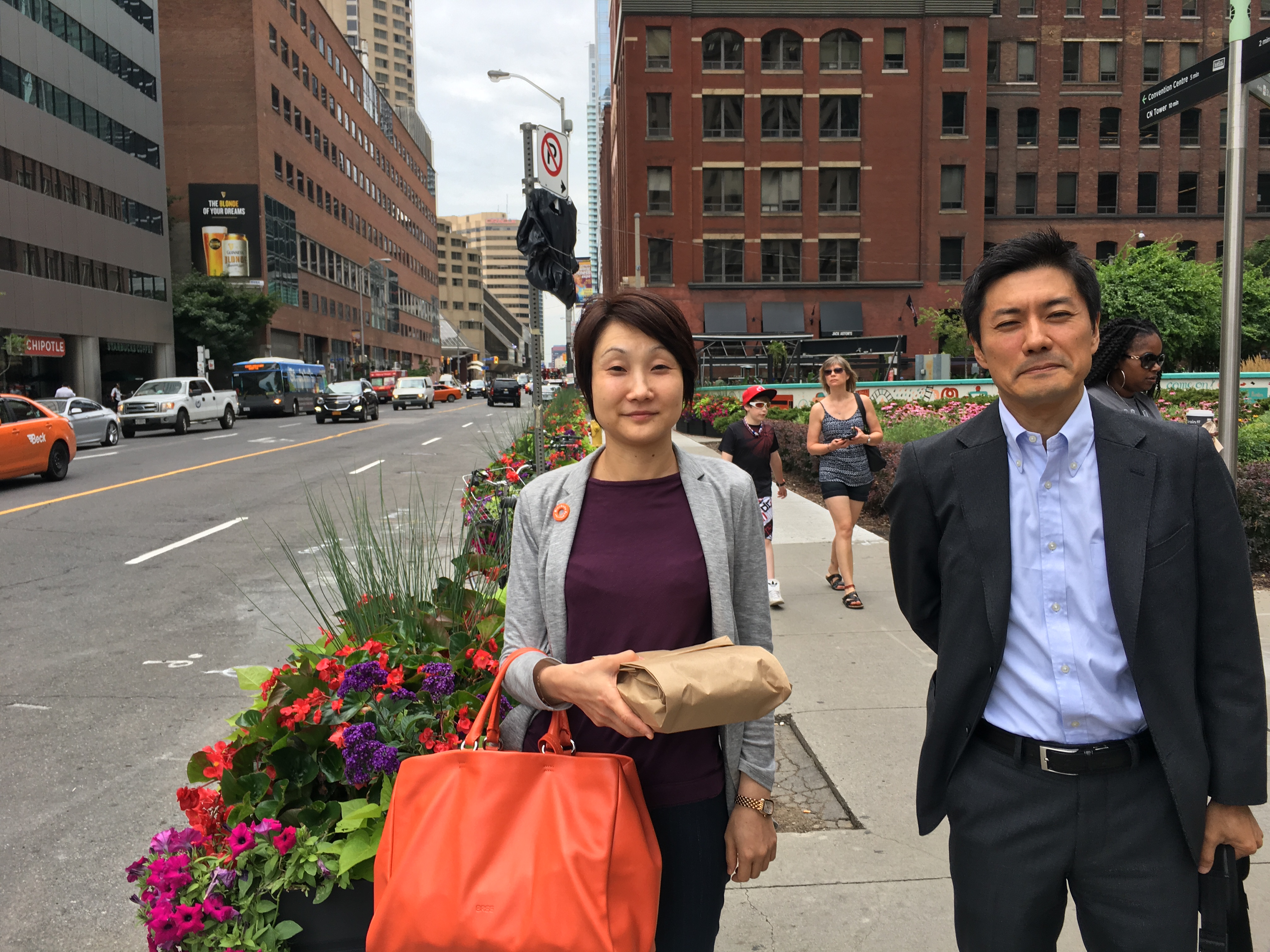Its already the third time that I am visiting Toronto this year. This time, it was to attend a meeting of the World Dementia Council, the first meeting after being re-formed at the 2013 G8 Summit held in the UK.
This date was arranged to follow the week-long Alzheimer’s Association International Conference that was held a few days earlier in the same city.
As soon as I checked in at the hotel, I headed out to the ballpark where the local team the Toronto Blue Jays were taking on the San Diego Padres in an MLB game. The stadium was almost full, meaning that the only seats available were the very steep outfield (500 level) seats. I had to leave the game at the top of the 7th inning. When I opened the morning paper the next day, I found that the game had not only gone to the 12th innings, but that they had overcome a 2 run deficit to post an improbable and dramatic walk-off win. The home crowd must have gone wild! You can relive the game through the following links (link 1, link 2).
Returning to topic, at the first meeting of the new independent World Dementia Council, there were discussions of several recommendations for the agenda, a brief summary and an outlining of the transition process (1).
The WDC was till recently a council created under the purview of the UK government. This was the first meeting as an independent council, yet there was very little discussion about how the new WDC would seek to enact changes that would help distinguish it from its predecessor. There was a general emphasis of discussion about such strategic intent, and I provided my input based around these observations. I think that this repositioning from UK Government to an independent one will be more difficult than imagined, but one that will nevertheless lay the foundation for the identity of this very important group in the years to come.
As one of the nations with the highest levels of population ageing, how will Japan act in the coming years. At the G7 held in Ise-shima in May, A Vision for Global Health was outlined, and section 2-2-2.5 deals addresses the issue of dementia. Similar recognition is required at the G7 Kobe Health Ministers’Meeting. For the ‘dementia tsunami’is something that we can predict with a high degree of certainty.
I met a lot of people here including John Dirks from the Gairdner Foundation, and Peter Singer, CEO of Grand Challenge Canada, and also had the opportunity to meet Consulate General Nakayama at the embassy.
I also mention Dr. John Dirk’s name here to celebrate the fact that the Canada Gairdner Global Health Award ( one that Dr. Satoshi Omura, Nobel Laureate of 2015, received in 2014) that was started in 2009 has been renamed to honour him ahead of his imminent retirement from the Foundation.
